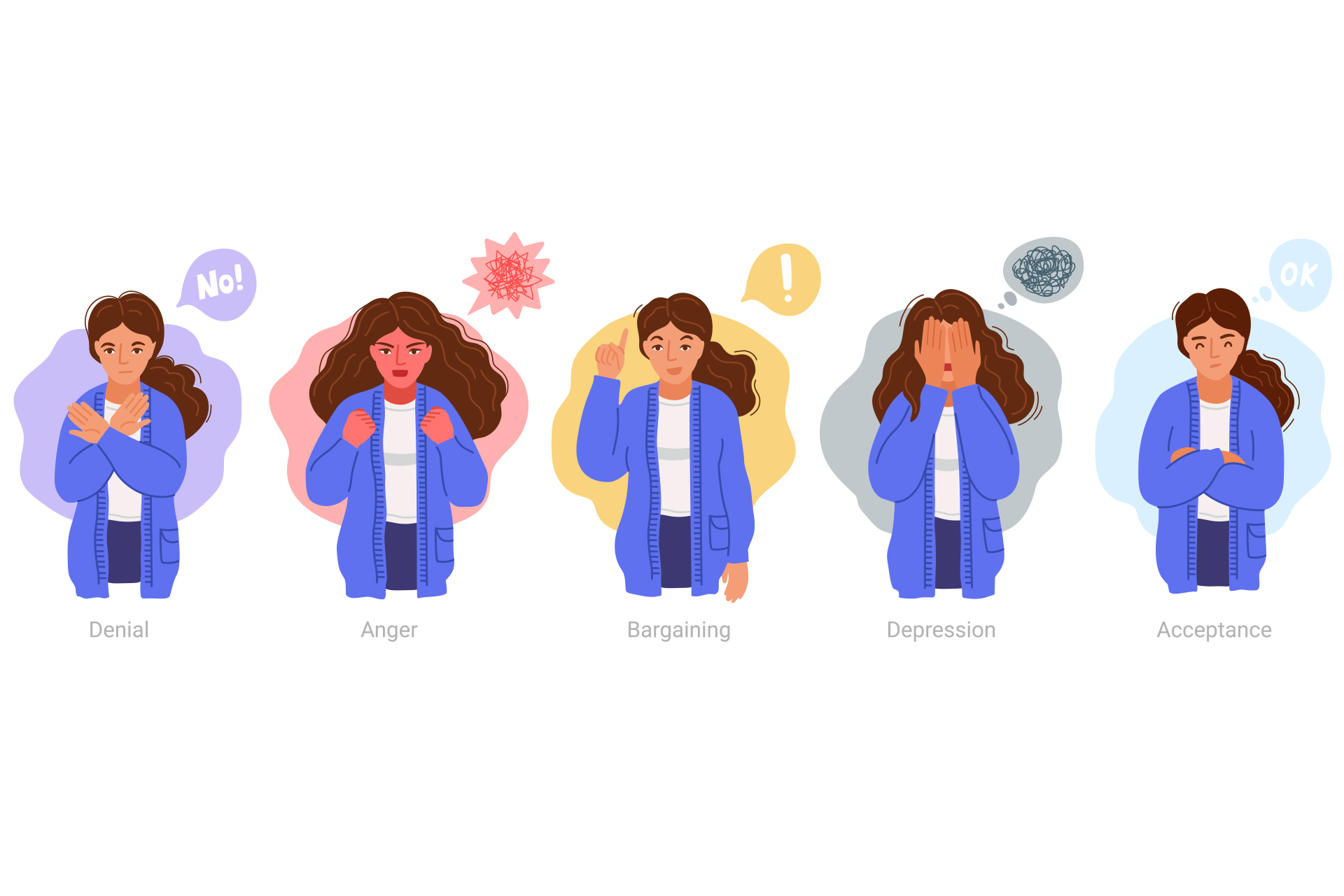The loss of a loved one is a deeply personal and often overwhelming experience. Each person’s journey through sorrow is unique due to their individual circumstances, relationships, and emotional resilience. For many, it can feel like being swept into a tide of emotions without a clear way forward.
August 30th is recognized as National Grief Awareness Day, a moment dedicated to addressing the complexity of grief, raising awareness about the importance of compassion, and supporting those struggling with loss. For families receiving home care services, this day serves as a reminder of how nurses and therapists can offer meaningful guidance and comfort during one of life’s most challenging transitions.
What Grief Really Means
The experience of grief is not confined to a single moment or ceremony. Grief begins the instant we understand that a loss is inevitable, whether through a terminal illness or sudden tragedy. It can last for weeks, months, or even years, depending on the depth of the bond and an individual’s personal coping mechanisms.
Everyone feels and reacts differently to the loss of a family member. The grief felt after the passing of a parent, child, or spouse may be far more intense than the sadness following the death of a distant relative. Cultural traditions, personal beliefs, and prior encounters with loss also dictate how someone processes their emotions.
It is crucial to recall that grief is not a weakness. Instead, it is a natural response to love and connection. Recognizing its significance enables people to take healthier steps toward healing rather than suppressing their emotions.
The Stages of Grief and Loss
One of the most common questions people ask when they are dealing with the loss of a loved one is: How long will this last? While there is no set timeline, understanding the stages of grief and loss can help provide perspective.
Psychiatrist Elisabeth Kübler-Ross identified five primary stages of the grief process in her work with terminally ill patients:
Grief is not linear. Many people move in and out of these stages repeatedly. Anniversaries, birthdays, and holidays can trigger a return to earlier emotions, even years later. These days in grief can feel like setbacks, but they are part of a natural and ongoing healing process.
Why Grief Awareness Day Matters
It is a reminder that grieving should never be rushed or dismissed. Too often, society encourages people to “move on” before they are ready, leaving individuals feeling isolated or misunderstood.
Acknowledging grief awareness promotes healthier environments where everyone can share their emotions without fear of judgment. It also helps families recognize that there is no “right way” to mourn. Some may need solitude, while others seek comfort in community or professional support.
This observance also puts the spotlight on the importance of early support for those experiencing loss. Whether through counseling, group sessions, or home-based care, providing resources during this period can prevent prolonged suffering and facilitate emotional recovery.
The Role of Home Nurses and Therapists in Grief Support
For families receiving home health care, grief can feel particularly complex. The same professionals who provided care for an ill patient often continue to support loved ones after death.
Home nurses and therapists offer compassionate guidance that helps families process emotions and manage practical needs during the grief process. Their involvement may include:
By providing this holistic approach, home-based professionals alleviate the burden of dealing with the loss of a loved one and equip families with the tools they need to begin rebuilding their lives.
Resources for Healing and Support
For those struggling after a loss, several resources can make a meaningful difference:
- 1
Grief Counseling – Licensed therapists can provide tailored coping strategies to help individuals navigate their grief.
- 2
Support Groups – Meeting others who share similar experiences fosters connection and understanding.
- 3
Educational Resources – Books, articles, and workshops can help explain the grief process.
- 4
Helplines – Trained professionals are available to provide immediate emotional support when grief feels overwhelming.
- 5
Community Memorials – Events that honor loved ones can help families find a sense of belonging through shared remembrance.
Grief should not be faced in isolation. Seeking help is not a sign of weakness but an essential step toward healing.
Moving Forward with Compassion
National Grief Awareness Day 2025 encourages communities, families, and care providers to come together in compassion. By recognizing the realities of grief and offering support, we can help break down the stigma surrounding loss.
For those who have experienced the death of someone close, the journey may feel unpredictable. But with professional guidance, community support, and the presence of compassionate home nurses and therapists, it becomes possible to face the future with resilience.
If you or someone you know is struggling with grief, remember that resources and professionals are available. No one should carry the weight of loss alone. By reaching out for support, you honor both your loved one’s memory and your own path to healing.
Call Signature 24/7 at 1 (800) 277-8291 for excellence in skilled and compassionate home health care.

Your Complete Home Health Care Solution!
ALWAYS ON CALL
| Monday – Sunday | 24 / 7 |
1 (800) 277-8291 (option 1)
COUNTIES SERVED
OUR VALUES
TESTIMONIALS

I love all of my home health people.

All Signature staff as well as therapy were very helpful.

Their services have always been great.

I really love my physical therapist. Gary has helped me so much.

This has been one of the best agencies. Very caring nurses.

I’ve had a really good physical therapist and really nice nurses.

I have had excellent care & would recommended them to anyone.

Gary Dixon is the very best physical therapist in Baytown and Houston Area.



